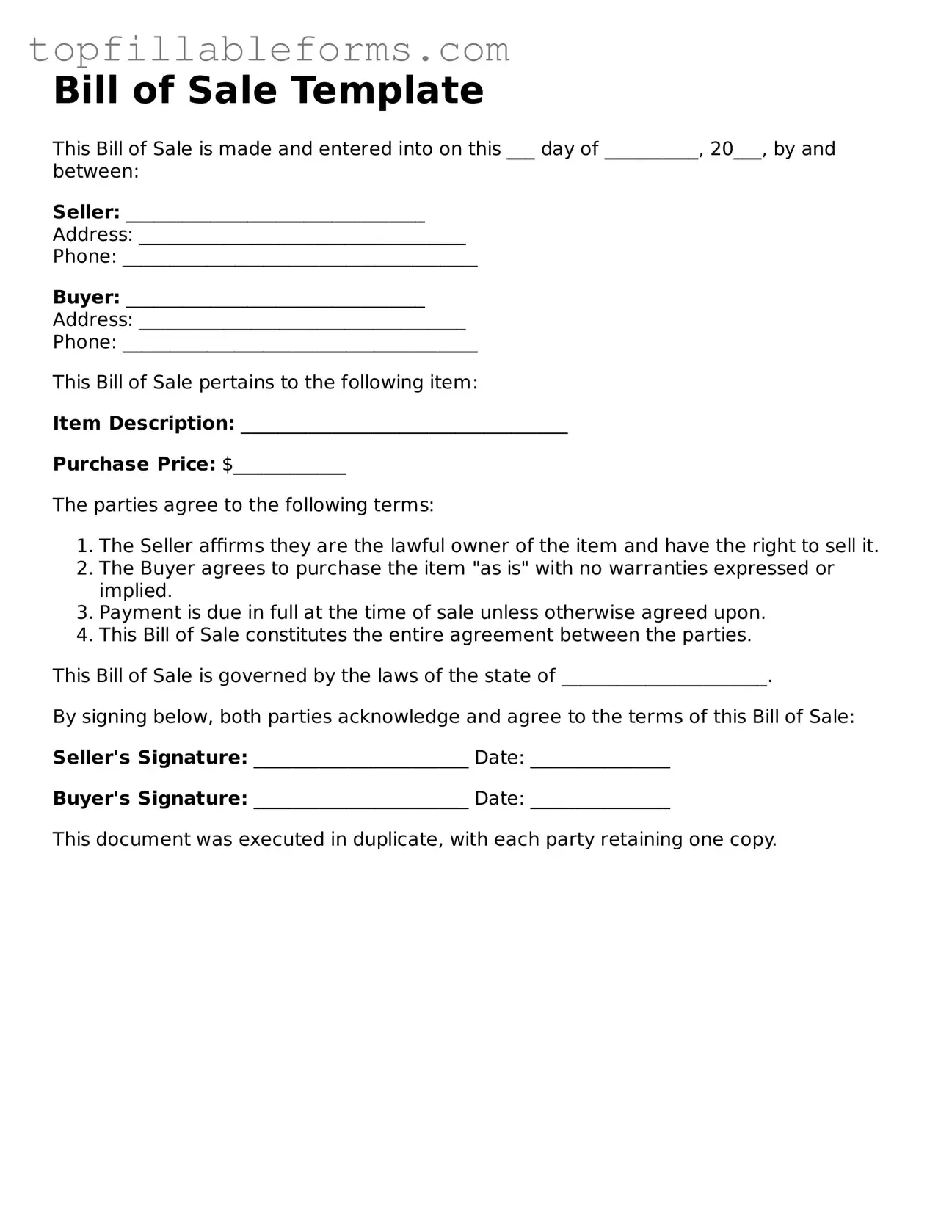Free Bill of Sale Form
A Bill of Sale is a legal document that transfers ownership of personal property from one party to another. This form serves as proof of the transaction and outlines essential details such as the description of the item, the sale price, and the date of the transfer. Understanding its components is crucial for both buyers and sellers to ensure a smooth transaction.
Open Bill of Sale Editor Here

Free Bill of Sale Form
Open Bill of Sale Editor Here
Finish the form now and be done
Finish your Bill of Sale online by editing, saving, and downloading fast.
Open Bill of Sale Editor Here
or
▼ PDF File
